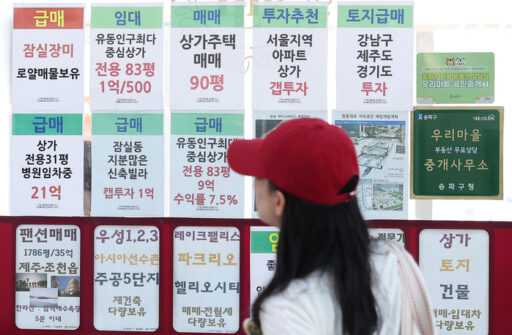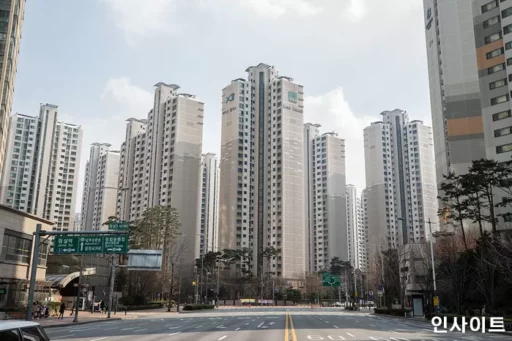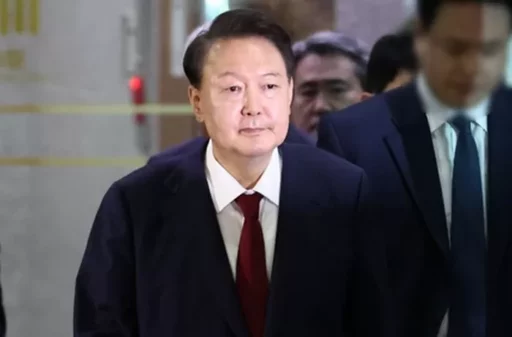The Impact of Loan Regulation: Rapid Cooling of the Real Estate Market in the Capital Region
The real estate market in the capital region has entered a phase of rapid cooling due to the tightened loan regulations that took effect on the 28th. Until recently, the Seoul real estate market was booming, but inquiries for transactions have sharply decreased, leading to a swift decline in atmosphere.
With the loan limit for mortgage loans capped at 600 million won and loans for purposes other than actual residence being completely blocked, the real estate brokerage scene is witnessing a phenomenon where inquiries from buyers have virtually stopped. This indicates that the government's strong household debt management policy is having an immediate impact on the market.

The Reality of Transaction Cliff and Rapid Decrease in Buyer Sentiment
According to related authorities on the 29th, the government announced the 'Strengthened Household Debt Management Plan' on the 27th, limiting mortgage loan amounts to 600 million won, particularly in the capital region and regulated areas. Additionally, the acquisition of properties by multi-homeowners for additional purchases is completely banned, and the obligation for actual residence has been strengthened.
The scope of regulation has also been extended to include policy loans and jeonse (key money deposit) loans, thereby inducing a market shift centered on genuine demand.
A certified realtor in Gangnam-gu, Seoul remarked, "As soon as the loan regulations were applied, inquiries for transactions stopped. Particularly, inquiries from younger individuals in their 30s and 40s have decreased to less than half, completely freezing buyer sentiment."
A certified realtor in Bundang-gu, Seongnam-si reported a similar situation.

"There had been a steady stream of inquiries for apartment units in new towns until recently, but even on the weekend, I didn't receive a single inquiry all day today," he explained. "With the reduction in loan limits, actual buyers are either giving up on purchases or postponing transactions altogether."
Market Reactions Similar to Past Loan Regulations
This phenomenon shows a pattern similar to past periods of increased loan regulations.
After the December 16 measures in 2020, the volume of apartment transactions in Seoul fell by 37% in February 2021 compared to the previous month, dropping to around 8,800 units.
During the August 2 measures in 2017, the number of transactions declined from 22,000 units in August to 14,000 units in September, indicating a rapid contraction in buyer sentiment immediately following the announcement of regulations.

This new measure is structured to only allow loans focused on actual demand.
In the capital region and regulated areas, the cap for mortgage loans is set at 600 million won, and the loan-to-value ratio (LTV) for first-time homebuyers has been lowered from 80% to 70%.
To receive a loan, there is also an obligation to actual reside within six months.
For multi-homeowners, the additional purchase loans are completely banned, and existing owners must sell their previous properties within six months when acquiring new homes.
Impact on Genuine Buyers and the Rental Market
With the scope of regulation now including policy and jeonse loans, a contraction in buyer sentiment in the mid-to-low price housing market is inevitable. Genuine buyers face heightened barriers to home ownership due to the tightening of loan limits and increased obligations for moving in. The reduction in loan conditions for nominally genuine buyers makes it difficult for first-time or non-homeowners to maintain purchasing power.

A 30-something employee, Mr. Lee, stated, "After hearing the news of the loan regulations, I inquired at my bank, and they informed me that the loan limits would be significantly lower than I had anticipated. Now, buying a house feels like a distant dream."
Repercussions in the rental market are also expected.
With the prohibition of jeonse loans conditioned on the transfer of ownership, the demand for gap investment (buying with jeonse) has been cut off, and the decrease in purchasing demand could lead to an increase in jeonse demand.
This could result in a prolonged imbalance in the supply and demand for jeonse, and there is a potential for acceleration toward monthly rents.
Experts evaluate this loan regulation as a clear measure to block signs of overheating in the capital region's real estate market.
Kim Hyo-sun, Chief Real Estate Officer at NH Nonghyup Bank, diagnosed, "While loan regulation may lead to short-term effects of transaction cliffs and price adjustments, if supply measures are not concurrently implemented, house prices could rise again."
Image source: News1, reference photos to aid understanding of the article.


